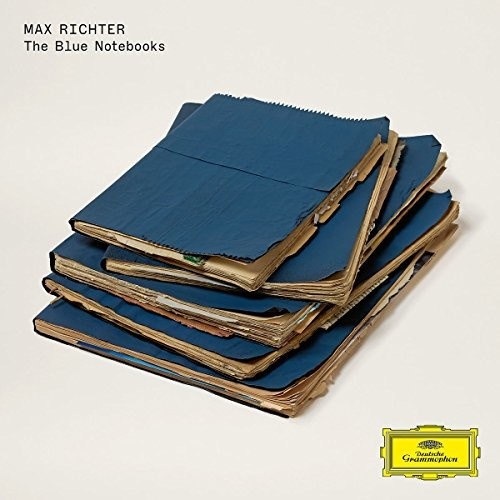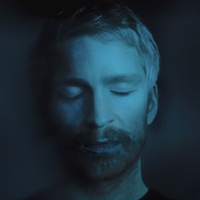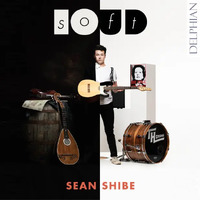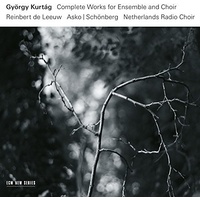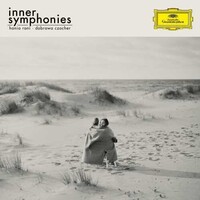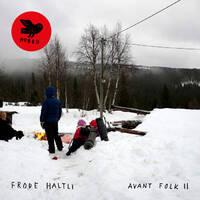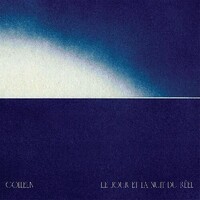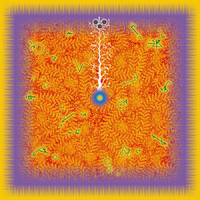2018 reissue
On February 15th, 2003, the world said no to war. Humanity linked up in what the New York Times called a "global daisy chain" of peaceful demonstrations against the US invasion of Iraq. It was the single largest anti-war protest in history, with up to 30 million people demonstrating worldwide. Max Richter was among those who took to the streets that day.
About a week later he made his second album, The Blue Notebooks. It was recorded in only three hours, with a string quintet and the actress Tilda Swinton reading from texts by Franz Kafka and the Nobel Prize-winning poet Czesław Miłosz "for a token fee." When the LP came out a year later, in March 2004, the killing of four Blackwater contractors in Fallujah sparked a renewed period of bloody violence. Quiet protest is the beating heart of The Blue Notebooks, which has now been reissued on its 15th anniversary with additional material. "It's an attempt for music to comment on society," Richter has said. "Specifically, it's an anti-violence record." "Shadow Journal" is the album's protest song.
In the opening bars, which are padded with ambient background chatter, Swinton recites the poem "At Dawn" from Miłosz's Unattainable Earth, a hallucinatory text about a city and some unnamed catastrophe, written in a confusion of past and present tense. The haunted composition that follows emulates the writing's lucid reverie and its projections of uncertainty via ominous bass rumbles and murky loops juxtaposed with a piercing violin melody. It captures the spirit of the "politics of unreality" that Richter says was emerging in 2003 around Iraq. "Shadow Journal" was also included in Richter's soundtrack for Waltz With Bashir, the 2008 animated documentary by Ari Folman about the director's own misremembered experiences of the Sabra and Shatila massacre during the 1982 Lebanon War.
Waltz With Bashir shares The Blue Notebook's central themes of memory, doubt and unreliability in the context of war. This ebb and flow of ideas—both conceptual and musical—from record to record is one of Richter's hallmarks. Take "On The Nature Of Daylight," which features a melodic echo from Memoryhouse, Richter's debut album. Richter repeats the trick elsewhere on The Blue Notebooks: "Arboretum" and "The Trees" share sonic DNA, providing a feeling of déjà vu. "Written On The Sky" and "On The Nature of Daylight" are also harmonically linked, creating a kind of feedback loop.
Even if you haven't heard The Blue Notebooks before, chances are you'll know "On The Nature Of Daylight." It's featured on several films: the Will Ferrell-starring Stranger Than Fiction, Martin Scorsese's Shutter Island—the version overlayed with Dinah Washington's 1960s ballad "This Bitter Earth"—and the 2016 sci-fi Arrival, which was scored by the late Jóhann Jóhannsson.
For the 15th anniversary edition of The Blue Notebooks, the piece gets a gorgeous "Orchestral Version" and an "Entropy" rearrangement. Meanwhile, Jlin and Konx-Om-Pax remix "Vladimir's Blues" and "Iconography," respectively. Though neither feel essential, they cohere nicely with the rest of the a;bum. Richter is a storyteller and devoted reader, and The Blue Notebooks is full of literary references, from Nabokov to Lucretius.
However, the album's story is kept deliberately nebulous, left wide open to the individual listener to interpret. This has helped the record age well, and it's only gained more cultural and political currency over time. Books provided Richter refuge as a "troubled" child, and in adult life his music has adopted a similar role. The Blue Notebooks remains a sublime piece of art that offers shelter from the world; a quiet, closed-off space where one can reflect on society's greatest afflictions, and perhaps heal a little, too.
(02894835014)
| SKU | 02894835014 |
| Barcode # | 02894835014 |
| Brand | Deutsche Grammophon |
Be The First To Review This Product!
Help other Birdland Records users shop smarter by writing reviews for products you have purchased.


